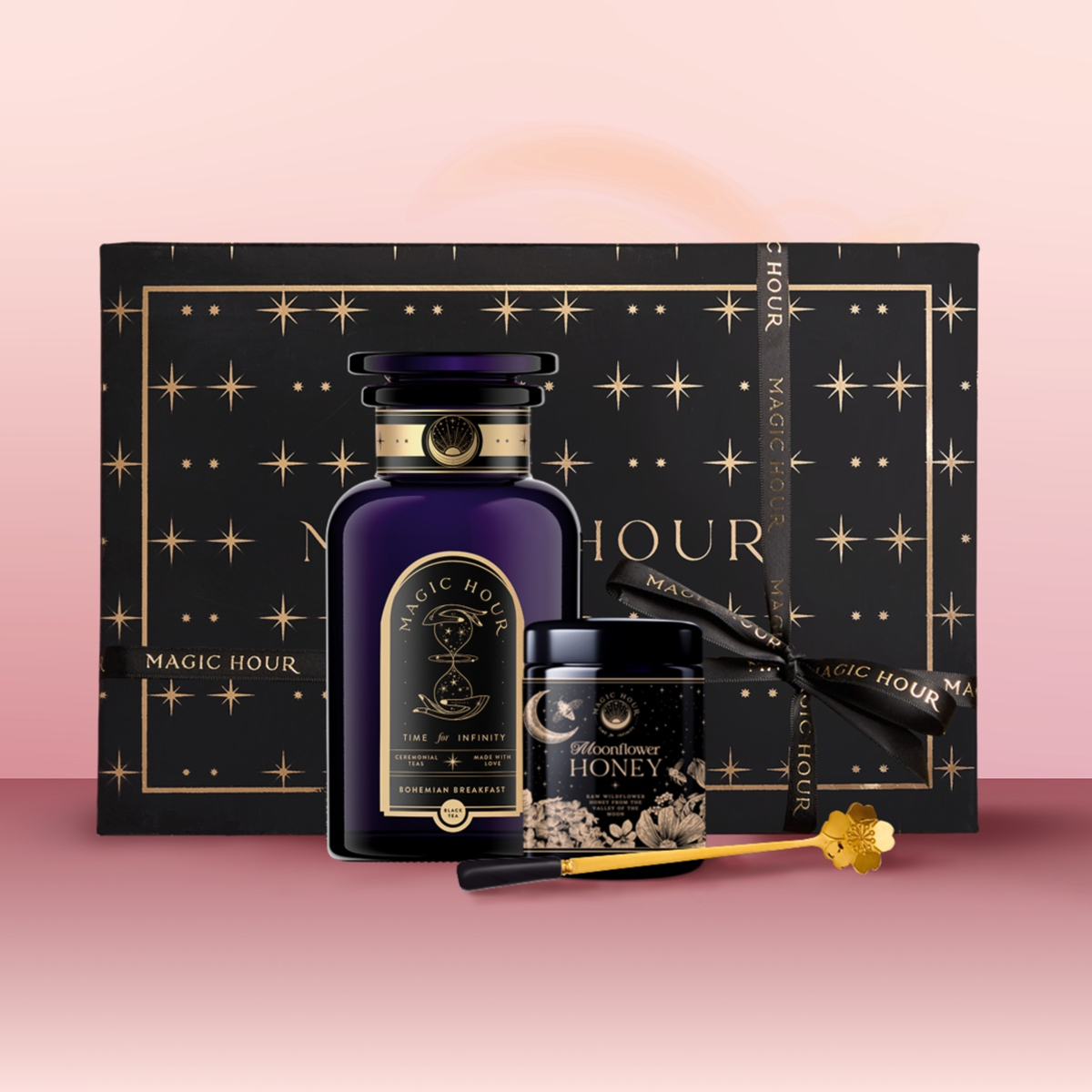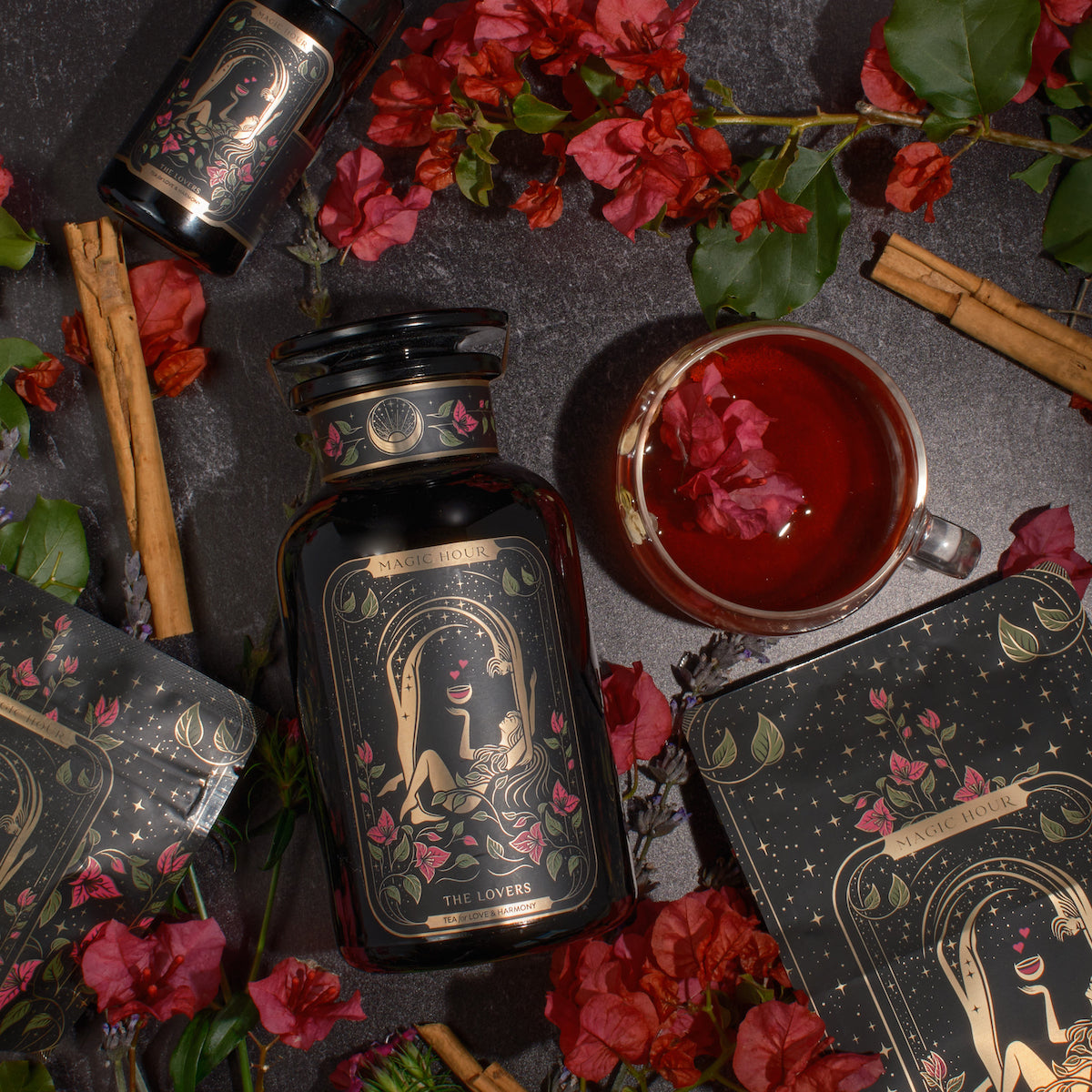Hibiscus tea is a refreshing drink with a slew of health benefits, one of the most significant of which is weight loss. It promotes detoxing, boosts the metabolism, and more.
In this article, we will discuss the potential benefits of hibiscus tea for weight loss and fat burn. We will also explain the best way to prepare hibiscus tea to enhance its weight-loss effects before we wrap things up with information on when to avoid it.
What is Hibiscus Tea?

Hibiscus tea is a derivative of the Hibiscus sabdariffa plant. Various cultures use it under names such as sorrel tea and agua de Jamaica. Its distinct tart flavor and vibrant color coincide with its potential health benefits. The plant has several edible parts, including the calyces, primarily used for tea and culinary applications.
People know this tea for its refreshing flavor profile, which blends bitter and sweet to create a tropical taste. You can enjoy hibiscus tea in a versatile way, either hot or iced, and combine it with various additives to add some flair.
Aside from its delicious taste, hibiscus tea's health benefits make it quite appealing to health-conscious individuals, especially those looking to lose or maintain weight.
Benefits of Using Hibiscus Tea for Weight Loss

Several scientific studies indicate that drinking hibiscus tea is sufficient to promote weight loss. Some of these benefits include reducing the size of fat cells, boosting metabolism, and more.
Do not use hibiscus tea as a crutch for weight loss; instead, consider it an excellent tool for supplementing your current regimen for healthy living. It should complement a nutritious diet, but it does not replace it.
With that in mind, let’s explore some weight-loss-related health benefits of hibiscus tea (backed by science).
1. Reduces the Size of Fat Cells
Experts believe hibiscus tea supports weight loss primarily by reducing the size of fat cells. Shrinking fat cells is the goal of every weight loss initiative, so it is remarkable that hibiscus tea has such a direct effect.
This works because hibiscus tea inhibits fat absorption, potentially affecting fat metabolism. Preventing fat absorption is ideal for preventing unnecessary weight gain.
However, lab studies in mice backed this research. Researchers have yet to study it with human subjects. With that said, the goal should never be to fully prevent fat absorption because your body needs a healthy amount to function at the optimal level.
2. Contains Antioxidants
Hibiscus tea has a very high antioxidant content, effectively combatting free radicals and reducing oxidative stress linked to various diseases. The antioxidants in hibiscus include beta-carotene, vitamin C, and anthocyanins, which can contribute to overall health and wellness.
Antioxidants help to repair cellular damage caused by aging and other environmental exposures. When you prime your body, it operates at its best and is better equipped to burn fat through exercise and other healthy habits.
It’s important to note that animal studies have shown promising results, but further research is necessary to understand hibiscus tea's total effects on human health.
3. Reduces Starch and Glucose Absorption
Hibiscus tea can reduce starch and glucose absorption, impairing the activity of digestive enzymes responsible for breaking down starches and sugars. This makes hibiscus valuable for lowering blood glucose levels and reducing fat absorption, which can aid weight loss.
Studies have shown that hibiscus consumption lowers blood sugar. This research is very important to individuals managing diabetes or generally looking to maintain stable blood sugar levels. It proves hibiscus to be a natural option for stabilizing blood sugar.
4. Boosts Metabolism
We talked a bit about hibiscus tea's rich antioxidant content. In addition to promoting overall wellness and cellular healing, this tea's high antioxidant content can enhance metabolic processes and support weight management.
The vitamins and minerals in hibiscus tea aid digestion, which promotes wellness and a properly functioning metabolism. When your metabolism gets the nutrients it needs, your body can regulate weight more easily.
Keep in mind that detoxification is only one part of supporting overall metabolic health. If you are on a weight loss journey, you should also exercise regularly and develop other healthy habits to support your body’s metabolic processes.
5. Diuretic Effect
Hibiscus tea is an excellent option for people who retain water since it is a diuretic. If you’re not familiar with the term “diuretic,” this simply means that drinking this substance causes the person to produce more urine, flushing fluids out of their body.
According to the American Association of Heart Failure Nurses (AAHFN), you may need a diuretic if you have visible swelling in your limbs or feel uncomfortably full in your stomach.
However, keep in mind that overconsumption of a diuretic like hibiscus tea may lead to potential dehydration if consumed excessively. It may also contribute to other side effects, such as stomach pain and low blood pressure.
6. Substitute for Sugary Drinks
Since hibiscus tea is naturally sweet and calorie-free, many people find it a healthier alternative to sugary drinks like soda.
This is great if you’re looking to cut back on calories while enjoying drinks besides water. It is also helpful because if you have a healthy beverage to reach for, you may be more motivated to hit your hydration goals.
We’ll talk more about sugar-free ways to put a delicious twist on your hibiscus tea shortly.
How to Make Hibiscus Tea for Weight Loss

Now that you’re more familiar with the positive effects of hibiscus tea, it’s time to learn how to make some to support your weight loss journey!
The first step in making hibiscus tea for weight loss is to source the best tea leaves for the job. When the goal is to tap into the medicinal benefits of hibiscus tea, it’s essential to use organic hibiscus flowers from a reliable source, like Magic Hour. Since one of the main benefits is detoxing, opting for an organic tea helps you avoid adding any additional toxins.
Next, you need to decide if you want it hot or iced. A hot cup of hibiscus tea is great because science shows warm water aids digestion, and a cold glass is refreshing. Either way is a win.
If you are brewing it hot, simply heat water to 200 to 212 degrees Fahrenheit and pour it over a tea bag or loose tea leaves in an infuser. The ideal steeping time is two to five minutes, depending on your desired strength.
For cold-brewed tea, add your hibiscus tea bags or loose-leaf tea to a pitcher and put it in the refrigerator overnight. If you’re in a time crunch and need it the same day, let it steep for at least four hours. Once it’s done, remove the tea leaves and serve the tea over ice.
You can flavor your hibiscus tea with lemon juice, ginger, or cinnamon. Some people like to add chunks of frozen pineapple or blueberries. It is fun to experiment with different flavors to figure out what hits the spot.
If you’re trying to lose weight, avoiding adding high-sugar sweeteners, like white sugar or honey is best. However, some people use naturally calorie-free sweeteners like stevia or monk fruit.
Potential Side Effects and Risks of Hibiscus Tea

Although hibiscus tea is a powerful weight-loss tool, it has a few side effects and risks. Here’s what you need to look out for.
Drug Interactions
Hibiscus tea contains hydrochlorothiazide, making it a natural diuretic. The presence of this compound can cause adverse drug interactions, especially with medication for blood pressure.
Since hibiscus contains phytoestrogens, it also interacts with hormonal medicine, such as birth control or hormone replacement therapies for gender affirmation or menopause.
If you are taking medications or have existing health conditions, consult a doctor before consuming hibiscus tea to ensure you avoid any unwanted interactions.
Liver Damage
We’ve highlighted the antioxidant properties of hibiscus tea as a benefit. However, for some individuals under treatment for liver damage, they risk being too potent.
Since hibiscus tea can increase detoxifying enzymes and affect conditions like liver steatosis, it is important to consult with a doctor if you are under treatment for liver conditions. Hibiscus tea should not cause liver damage, but it may interact with treatments for liver damage.
That said, researchers have only conducted relevant studies on animals, so don't worry if you have a liver condition and have consumed hibiscus extract. Simply talk with your doctor about consuming this tea going forward.
Low Blood Pressure
Many people drink hibiscus tea to lower their blood pressure. However, individuals prone to low blood pressure should exercise caution when using hibiscus, as it may further lower their blood pressure.
Since hibiscus tea has demonstrated the ability to reduce blood pressure in individuals at risk of hypertension, it is important to ask your doctor if this tea is okay to consume with your current treatment plan.
Again, researchers have yet to conduct additional studies on the effects of different hibiscus varieties, so it's better to play it safe when using medication that may interact with it.
Pregnancy and Breastfeeding
Some teas, including hibiscus teas, may pose risks for pregnant and breastfeeding mothers. Although there is not sufficient evidence to prove one way or another, some professionals believe that hibiscus tea can cause uterine contractions that may lead to miscarriage.
As we mentioned, hibiscus tea contains phytoestrogens. There isn’t enough research on this to support whether or not it is safe for pregnancy, so it’s better to err on the side of caution.
Lactating mothers should also be mindful of hibiscus tea consumption. Although some studies suggest that herbal teas increase milk production, the effects on the breastfeeding baby are unknown.
With those points in mind, it’s best to avoid hibiscus tea while pregnant or breastfeeding to eliminate the risk of causing fetal death or harming the breastfeeding baby.
Conclusion
If you’re looking to drop a few pounds, you might want to try hibiscus tea for weight loss. Since it’s rich in antioxidants, it will help your body function at the level it needs to burn pesky fat. Plus, it’s very refreshing and an excellent substitute for sugary drinks.
Looking for a high-quality hibiscus tea to help propel you toward your weight loss goals? Shop Magic Hour’s collection of delicious hibiscus teas today!











